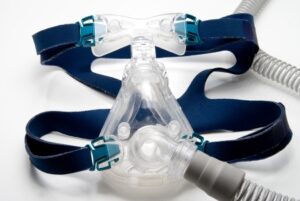WHAT IS SLEEP APNEA?
If you and your partner are both non-snorers, you’re lucky. It’s easier for you both to sleep soundly throughout the night. It also means that you probably have sleep apnea, since snoring is one of the primary symptoms of obstructive sleep apnea. There are certain steps you can take to reduce your risk for this sleeping disorder, and your dentist near Belmont can help. Make a dental appointment if you do show symptoms, and continue reading for a closer look at sleep apnea.
Basics and Symptoms
The top symptom associated with sleep apnea is snoring. This makes it difficult for your dentist to pick up on, since you’re usually not asleep in the dental office. Sleep apnea can be obstructive or central, and although central sleep apnea is less common, it’s also less picky with who it affects. Both types will have an impact on your alertness and your quality of life. In addition to snoring, sleep apnea sufferers experience nightmares, insomnia, and fatigue during the day. Dry mouth, irritability, and headaches are also possible symptoms of sleep apnea.
Causes and Risks
Obstructive sleep apnea blocks your airways while you sleep, and the forced air is what causes the snoring. Central sleep apnea happens when signals get mixed up between your brain and your muscles, so your body simply stops breathing. Obstructive sleep apnea tends to happen to people who are overweight, as a greater diameter of the neck is a risk factor for this condition. Although everyone is susceptible to central sleep apnea, people who take medications for certain conditions experience a higher risk. This type of sleep apnea doesn’t cause snoring, since the airflow completely stops.
Treatment Options
Sleep apnea increases your risk for many other serious medical conditions, so get checked out right away. Your dentist can use certain techniques and appliances to help alleviate your symptoms and get the condition under control, so you can get back to enjoying your life.

